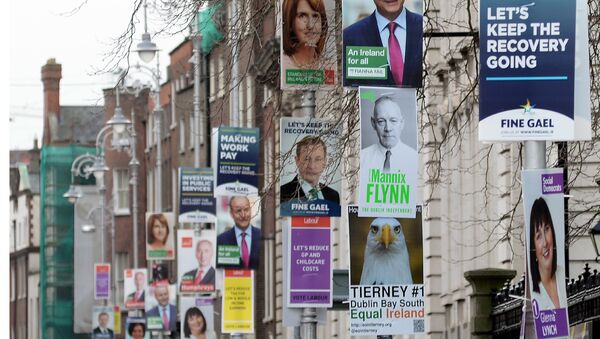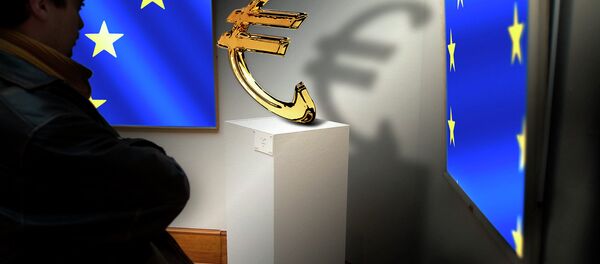The people of Ireland will cast their ballots Friday to elect 157 out of 158 members of the country's parliament — the Dáil.
Recent surveys of the Emerald Isle's 3.2 million voters suggest that a hung Parliament is the most likely scenario.
Voting has begun in Ireland's general election https://t.co/O9c7hY5onq #GE16 pic.twitter.com/XBUCsEFZub
— Bloomberg Business (@business) February 26, 2016
Some commentators have even gone as far as to nickname the election "Independents' day", as up to 20 deputies without any party affiliation are expected to be voted into office.
Doomed coalition
The current government is a coalition of the conservative Fine Gael party, led by Prime minister Enda Kenny, and the progressive Labour party. It is unlikely lt that the two parties will once again manage to muster the 79-MP majority they need.
Last poll: Fine Gael and Labour could be within touching distance of re-election https://t.co/2AwCf46fYw #ge16 pic.twitter.com/2Lv5LXQmGk
— TheJournal.ie (@thejournal_ie) February 25, 2016
Kenny's party may get the majority of votes, while Labour is expected to suffer huge losses because of opposition to the government's austerity policies.
Labour's decline could be a boon for the group of independent candidates that are running on anti-austerity platforms.
Newspaper columnist Shane Ross is expected to become a pivotal figure in post-election Ireland. He became one of the country's most-voted candidates since the 2010 election. The pillars of his political program are fight to corruption, enhance transparency and create more jobs.
At least 30k on Right2Change Right2Water march…an electoral quake acoming pic.twitter.com/iLNjg6ByQI
— Kitty Holland (@KittyHollandIT) February 20, 2016
While mainstream parties have warned against the instability that could result from an Independents' triumph, Ireland is likely to walk the anti-austerity path other EU countries have recently chosen over the past.
European Horror Story
The so-called 'Celtic Tiger' had once been one of Europe's most dynamic economies. An unchecked flow of foreign investments — compounded by the reckless conduct of some Irish banks — resulted in a property bubble which eventually led to a full-blown crisis in 2008.
@nytimes have you seen this!!! #GoVoteIreland is having craic with the election please share the craic to your fans. pic.twitter.com/JTuCEaFROI
— Go Vote (@GoVoteIreland) February 24, 2016
The recession was so bad that in 2010 Ireland had to apply for a multibillion bailout from the EU and the International Monetary Fund.
From being a 'Tiger', Ireland had become a member of the so-called PIIGS — a club of economically problematic European economies that also comprised Portugal, Greece, Italy and Spain.
All PIIGS members had also received bailouts since 2008, with Greece getting its third one just last year. The only exception was Italy, which had to adopt austerity policies.
The cuts to welfare, pensions and social services included in the bailout deals had invariably triggered the surge of strong anti-austerity parties and movements in the PIIGS countries.
Greece is the only European country where such a party — Syriza — has managed to form a government. Other movements such as Spain's Podemos and Italy's Five Stars Movement are also playing an increasingly prominent role.
And Ireland's "Independents' day" could eventually create something similar in Dublin, too.





